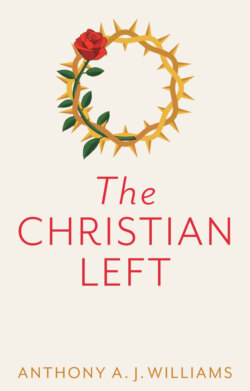Читать книгу The Christian Left - Anthony A. J. Williams - Страница 9
1 The Spirit of Brotherhood: Foundations of British Christian Socialism
ОглавлениеThe first socialist organisation in Britain was not a trade union or a political party. Rather, it was a society founded to promote Eucharistic observance at St Matthew’s Church in Bethnal Green. The Guild of St Matthew (GSM), founded in 1877, was the child of Stewart Headlam (1847–1924), an eccentric Anglican priest with a dual commitment to Anglo-Catholic sacramentalism and socialism. The GSM had among its aims both the promotion of ‘frequent and reverent worship in the Holy Communion’ and the promotion of ‘the study of social and political questions in the light of the Incarnation’. Headlam’s view of politics was stark: he declared as the leader of the GSM that the ‘contrast between the great body of workers who produce much and consume little, and those classes which produce little and consume much, is contrary to the Christian doctrines of brotherhood and justice’, and that all Christians should seek to ‘bring about a better distribution of the wealth created by labour’.1 The connection between a high-church sacramentalism and socialism may not be immediately obvious, but for Headlam and others like him the two were intrinsically linked.
British Christian Socialism arguably has its origins in 1848 when Frederick Denison Maurice (1805–72), Charles Kingsley (1819–75) and John Malcolm Forbes Ludlow (1821–1911) joined forces to offer a Christian view of social questions as a response to the Chartist campaign for voting rights and parliamentary reform in the UK and the radical forces at work across the continent of Europe. Question marks remain, however, over whether these men, Maurice in particular, were fully committed to socialism. Nevertheless, they did bequeath a theology of God’s Fatherhood and human brotherhood, which was to become the keystone of the socialism espoused so clearly by Headlam. Headlam was followed by other Anglican clergy who took up the message of Christian Socialism, among them Henry Scott Holland, Charles Gore, Conrad Noel and William Temple, as well as Nonconformists such as the Wesleyan Methodist Samuel E. Keeble and the Baptist John Clifford. These men established a vibrant tradition of church socialism, which has lasted until the present day.
Christian Socialism did not remain purely the concern of the church. Unlike continental Europe, where mutual distrust characterised the relationship between the church and the political Left, the ethics of Christianity became part of the very DNA of the nascent Labour movement. James Keir Hardie was the key figure in the founding of the Scottish and the Independent Labour parties before he helped to form the Labour Representation Committee – later the Labour Party – in 1900. Hardie did not disavow the theories of Karl Marx – whether the orthodox doctrine enshrined by Friedrich Engels and Karl Kautsky, or the revisionist version offered by Eduard Bernstein – but, nevertheless, declared unambiguously that ‘the impetus which drove me first of all into the Labour movement, and the inspiration which has carried me on in it, has been derived more from the teachings of Jesus of Nazareth, than from all other sources combined’.2 In this Hardie was followed by George Lansbury, Arthur Henderson, Margaret Bondfield, John Wheatley, R.H. Tawney, and many others. The Christian Socialist principles first declared by Headlam on behalf of the GSM fundamentally shaped the Labour Party and had their ultimate triumph in the social democratic agenda enacted by the post-war Labour government.
